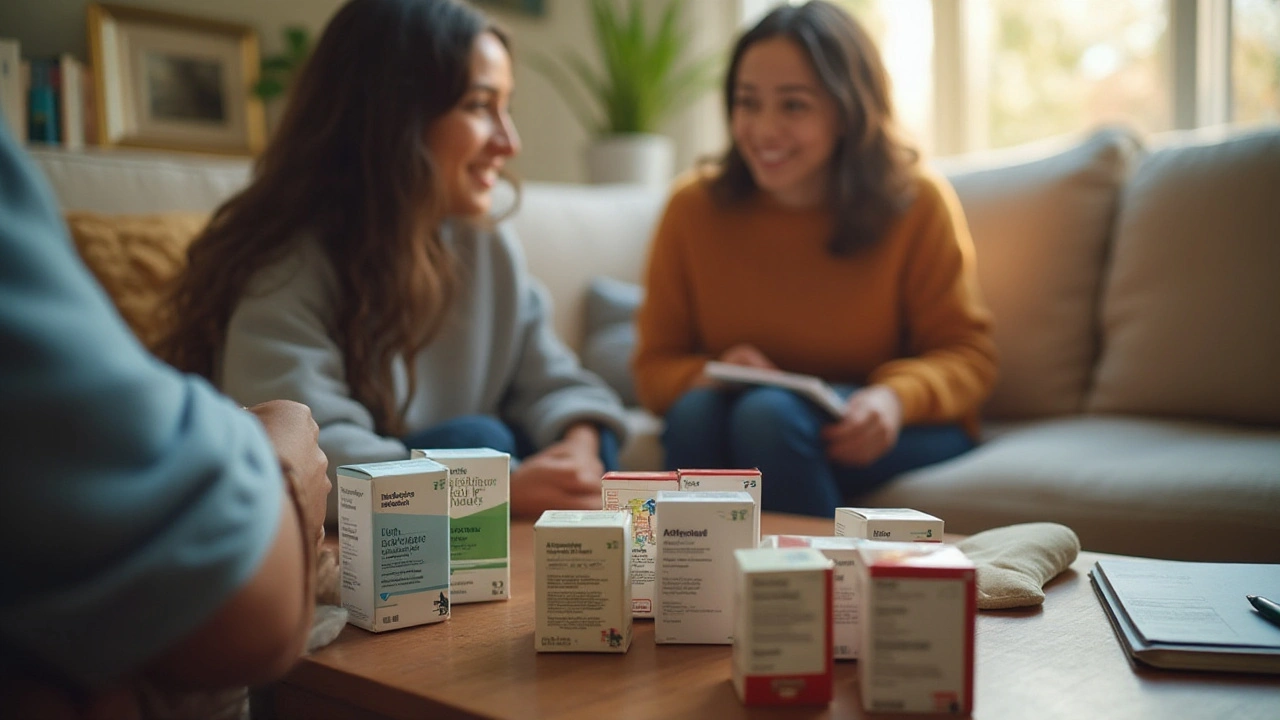Antabuse alternatives: safer and more practical choices
Antabuse (disulfiram) works by making you sick if you drink. That works for some people, but others can’t tolerate the side effects, worry about safety, or simply don’t want an aversive reaction. If you’re looking for options that reduce craving or block alcohol’s reward instead of causing a punishment, here are common and practical alternatives to discuss with your doctor.
Medications that reduce craving or block reward
Naltrexone — available as a daily pill or monthly injection (Vivitrol) — blocks brain opioid receptors that make drinking feel rewarding. Many people find it cuts craving and helps them drink less or stay sober. Important: naltrexone isn’t safe if you need opioid painkillers or haven’t completed an opioid detox.
Acamprosate — helps rebalance brain chemistry after detox and is used to support staying abstinent. It’s taken three times daily and tends to work best for people who are already sober and want to avoid relapse. Kidney function is checked before starting.
Topiramate — an anticonvulsant sometimes used off-label for alcohol problems. It can lower cravings and the amount you drink. Watch for side effects like memory or word-finding trouble and fatigue. Doctors usually start low and increase the dose slowly.
Baclofen — a muscle relaxant with GABA-B activity that some studies show can reduce alcohol craving. It’s used off-label and may help people with strong physical cravings, but sedation and withdrawal risks mean you need close medical follow-up.
Behavioral and support options — often the most useful part
Medications work best with counseling. Cognitive behavioral therapy (CBT), motivational interviewing, and relapse prevention teach practical skills for triggers and cravings. Peer support groups like SMART Recovery or AA add structure and social accountability that many people find essential.
Contingency management (rewarding sober behaviors), family therapy, and digital support apps also help. If daily pills are a barrier, monthly Vivitrol or clinic-based injections can improve adherence. Combining medication with therapy tailors treatment to your goals: reduced drinking, controlled use, or full abstinence.
Quick practical tips: get a medical check before starting any drug, tell providers about other medicines or opioids, ask about side effects and monitoring, and set clear personal goals with your clinician. If pregnancy is possible, discuss risks—some drugs are not recommended.
If Antabuse hasn’t worked or feels wrong for you, plenty of alternatives exist. Talk openly with your doctor or an addiction specialist about which option matches your health, lifestyle, and recovery goals. Picking the right mix of medicine and therapy makes a big difference.

Top 10 Alternatives to Antabuse for Treating Alcohol Dependence in 2024
Exploring effective alternatives to Antabuse for alcohol dependence in 2024, this article examines options like Naltrexone, Acamprosate, and Kudzu Root Extract. It offers insight into each alternative's pros and cons, helping individuals make informed decisions. Understanding these options alongside behavioral therapies can improve treatment outcomes. This comprehensive guide supports a personalized approach to alcohol dependence management.
read more




